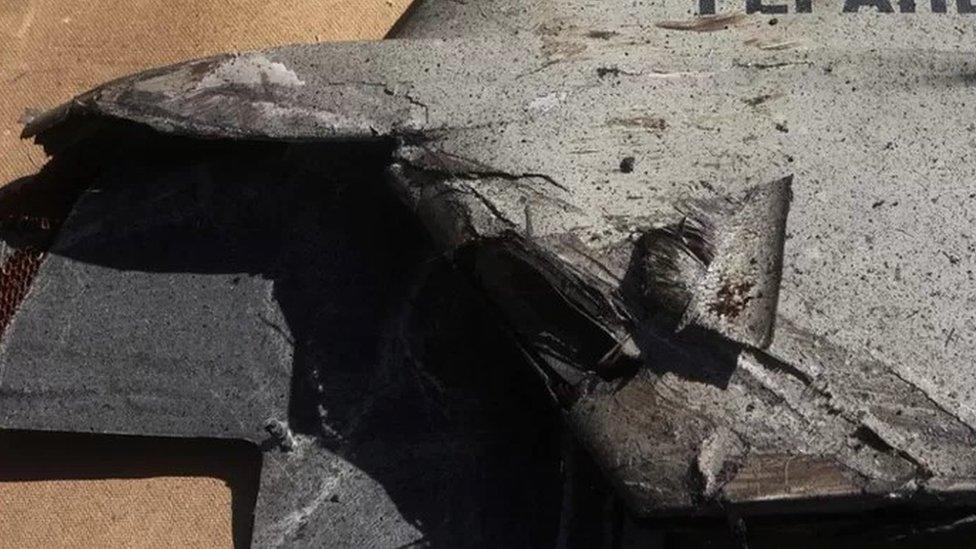Ukraine war: US says Iran now Russia's 'top military backer'
- Published
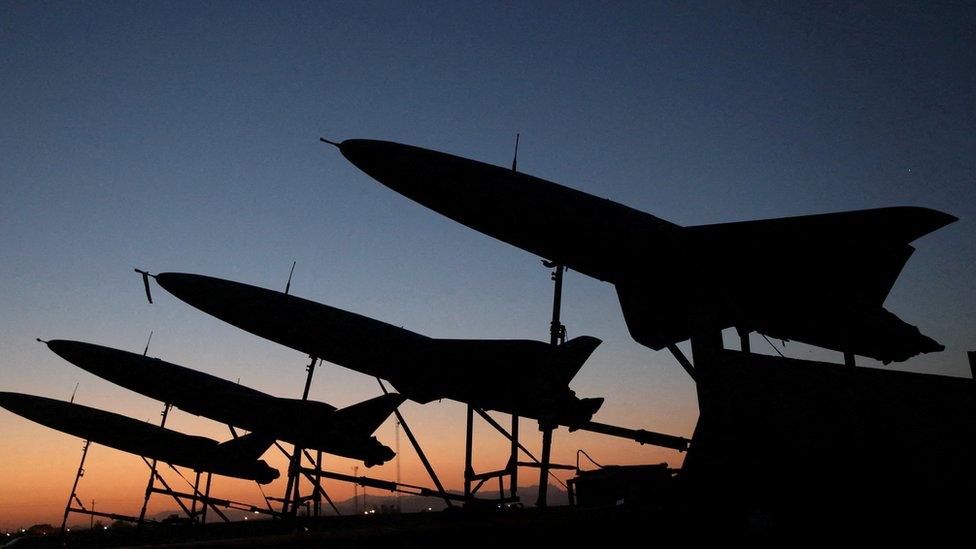
Ukraine has accused Iran of sending drones to Russia, which the Middle Eastern country denied then later admitted
Russia and Iran's relationship has warmed to a fully fledged defence partnership, the US has said.
Russia is giving an unprecedented level of military support, says US national security council spokesman John Kirby.
The US has seen reports that the two countries are considering joint production of lethal drones, he adds.
It comes after Ukraine accused Iran of supplying Russia with "kamikaze" drones used in deadly attacks on 17 October, which Tehran initially denied.
The Middle Eastern country later admitted sending Moscow a limited number of drones, "many months" before the war.
In response, Ukraine's President Volodymyr Zelensky said this was a lie and that many more Iranian drones were being used.
The Ukrainian air force said it downed 10 of 15 such drones used to attack southern regions in the early hours of Saturday.
The strikes left more than 1.5 million people without power in Odesa, Mr Zelensky said in his evening address, adding it could take days for electricity to be restored.
Earlier, Australia announced it was sanctioning three Iranians and one Iranian business for supplying Russia with drones to use against Ukraine.
Speaking on Friday, Mr Kirby said that a partnership between Iran and Russia to produce drones would be harmful to Ukraine, Iran's neighbours and the international community.
"Russia is seeking to collaborate with Iran in areas like weapons development, training," he said, adding that the US fears that Russia intended to "provide Iran with advanced military components" including helicopters and air defence systems.
"Iran has become Russia's top military backer..." he said. "Russia's been using Iranian drones to strike energy infrastructure, depriving millions of Ukrainians of power, heat, critical services. People in Ukraine today are actually dying as a result of Iran's actions."
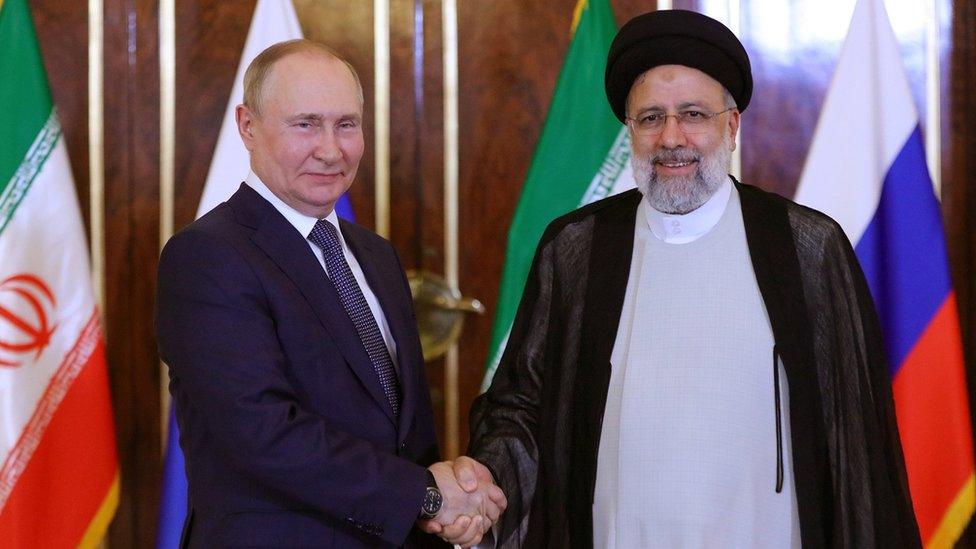
Russian President Vladimir Putin with Iranian President Ebrahim Raisi in July.
In response to Mr Kirby's comments, UK Foreign Secretary James Cleverly said that Iran had become one of Russia's main military supporters and that the relationship between them was threatening global security.
The "sordid deals" between the two countries have seen Iran send hundreds of drones to Russia, he said.
"In return, Russia is offering military and technical support to the Iranian regime, which will increase the risk it poses to our partners in the Middle East and to international security," he added.
He said the UK agreed with the US that Iranian support for the Russian military would grow in the coming months as Russia tried to get hold of more weapons, including hundreds of ballistic missiles.
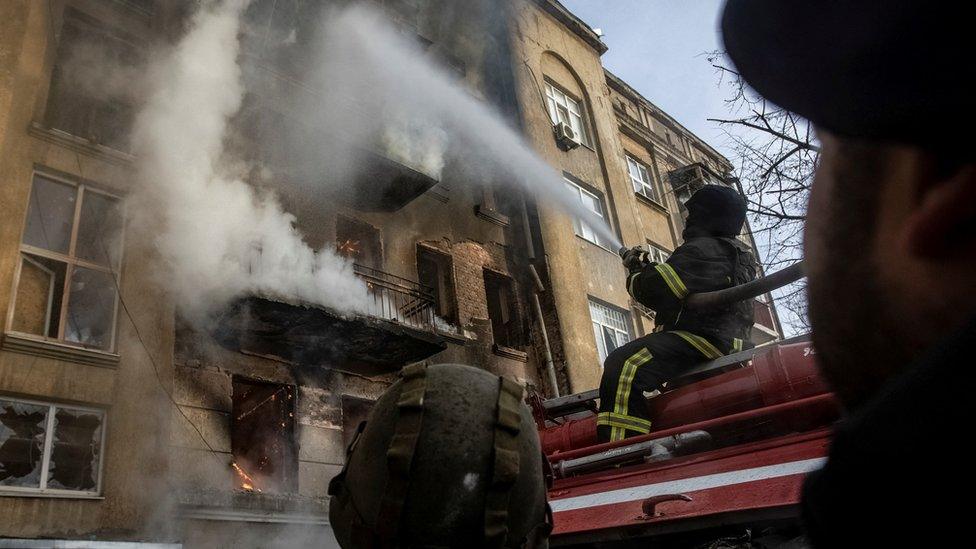
Russia's war on Ukraine continues to affect many cities and regions, including Bakhmut in the Donbas
On Saturday, Penny Wong, Australia's foreign minister, said in a statement, external: "The supply of drones to Russia is evidence of the role Iran plays in destabilising global security. This listing highlights that those who provide material support to Russia will face consequences."
She also announced measures against 19 other people and two entities, including Iran's Morality Police, for the brutal treatment of anti-government protesters following the death of 22-year-old Mahsa Amini in custody earlier this year.
In other developments:
Russia has turned the Ukrainian city of Bakhmut into "burnt ruins", President Zelensky says, following months of deadly fighting in the eastern Donbas region
The United Nations says Belarus will allow the transit of Ukrainian grain through its territory for export from Lithuanian ports
The head of a Ukrainian human rights organisation that was jointly awarded this year's Nobel Peace Prize - Oleksandra Matviichuk of the Centre for Civil Liberties - has called on nations to set up an international tribunal to try Russian President Vladimir Putin for Russia's war in Ukraine
Russian human rights activist Yan Rachinsky, from the organisation Memorial which was also awarded this year's accolade, has told the BBC he was ordered to turn down the prize by Russian authorities.
The International Olympic Committee says it will explore a proposal to allow athletes from Russia and Belarus to take part in sporting events in Asia - despite an international ban
Watch: Operating on a baby in the dark after missiles hit Kyiv
- Published5 November 2022
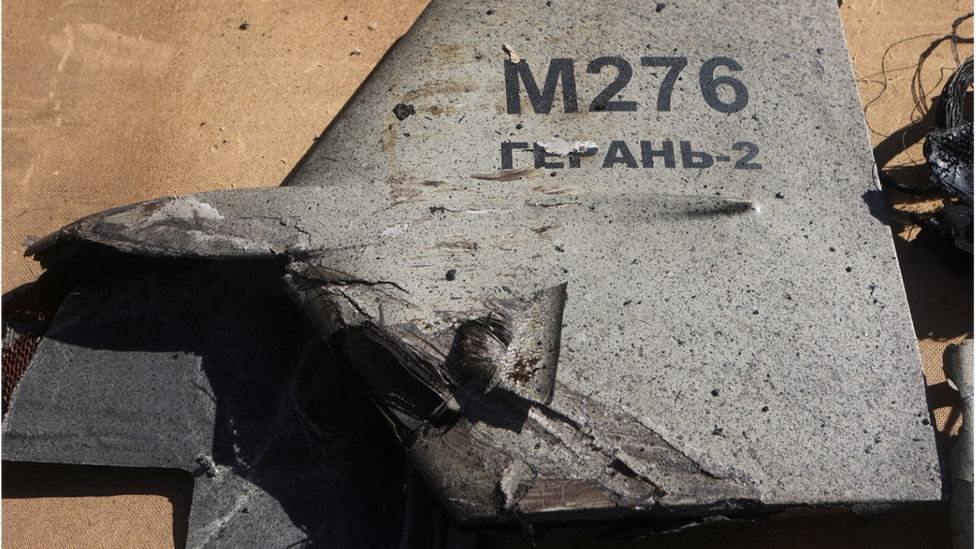
- Published21 October 2022
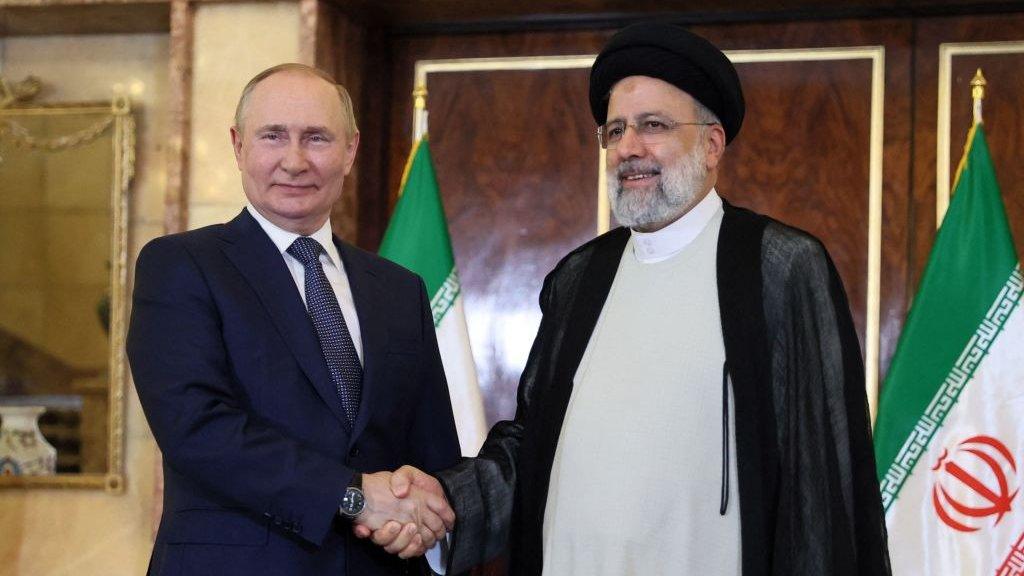
- Published20 October 2022
